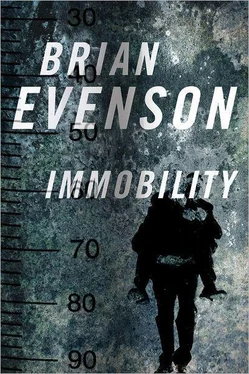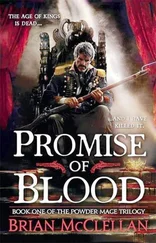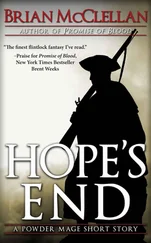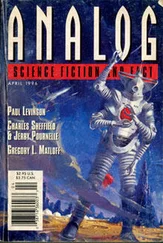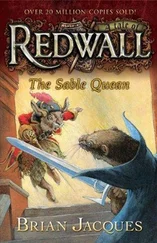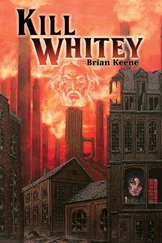He thought again about himself, about his past that had been lost somewhere deep within his frozen brain while he was in storage, or perhaps lost in some other way. What had he been? Had he really been a fixer, or was that just another of Rasmus’s near lies? Was he a good person or a bad person? What did I used to be? he asked himself, and then realized that, no, that wasn’t the right question to ask. The right question was not what did he used to be, but what was he going to be now?
* * *
BUT TO THAT QUESTION there was no immediate answer. Days went by. At first he worried constantly about his illness, wondering when he’d soon lose all feeling, all sensation. But soon his legs were working again, completely. He was walking without crutches with no sign that he had ever been ill, that he was likely to die, that anything was wrong with him at all. Rykte tested his reflexes, asked him how he was feeling, helped him if he asked for help, but mostly left him on his own.
Some days Horkai would stay in the house, choosing one of the books piled in the bathroom to read, having a discussion or genial argument with Rykte if he was there. Other days he would wander the neighborhood, breaking into empty and collapsed houses, looking at faded family pictures, at piles of bones huddled in the corner of cellars. Some houses were impossible to enter, were completely collapsed or so close to it that he didn’t feel he could risk going in. Others, however, had rooms relatively intact. Here a fence would still be standing, but just a few yards away it would be blown flat to the ground, with nothing to indicate why it had fallen in one spot but was still standing in another. It was as if the Kollaps (unless it was simply the collapse ) had been random and fickle, unpredictable.
Other times he found his footsteps leading him relentlessly back to the other house, the one containing the storage tank. He would remove the boards from the fence and go through, step down into the noisy basement, and then stare through the lid at the cylinder covered in red writing. He would stay there staring, sometimes with his finger touching the switch. But in the end he would always climb back up the stairs and leave without doing anything. Sometimes when he came out, he’d find Rykte in the backyard, as if he’d been following him. He’d look expectantly at Horkai until Horkai shook his head, and then he’d smile just a little and step back through the fence and disappear.
LATER, HE REALIZED IT might have gone on like that for years. He might have slowly grown older exploring the neighborhood, reading, looking for signs that life was beginning again, wandering, and every once in a while—less and less as time went on—crossing the irrigation ditch and the fence to stare into the storage tank. But after four or five months, something happened that made everything change.
He had wandered maybe four, maybe five streets away, tracing the way the moss in the stream changed as you continued down it, thicker and greener here, almost entirely gone there, but slowly starting to thicken and spread.
He was on his knees, his face a few inches from the water when he heard something. At first, he assumed it was Rykte, probably out exploring as well, but then he heard a voice.
“… somewhere around here,” he heard the voice saying.
For a moment he assumed it was Rykte speaking to himself, even though speaking to himself wasn’t a habit Rykte seemed to have. But there was something wrong with the voice, something strange about it.
And then he heard another voice. It said, “Give me the map.”
He got back up to his feet, carefully peered over the remains of the cinder block wall. There, just on the other side, on the roadway, stood two figures in dark hazard suits, rifles slung over their shoulders. They were holding a map between them, both of them bent over it.
“No, no,” said the second, pointing. “You see, we turned here. We should have turned here. We have to go that way,” he said, and gestured in the direction of Rykte’s house.
“Are you sure?”
“Am I sure?” said the second, turning his faceplate toward his companion. “No. But I’m sure this is the wrong place. If you have a better idea, let’s hear it.”
The first, grumbling, folded up the map, and they started away.
* * *
HE FLED QUICKLY BACK along the stream, back toward the house, pushed through the boards and entered through the back door. “Rykte?” he said. “Rykte?”
“What is it?” said Rykte from the front room.
“They’re coming,” said Horkai. “They’re almost here.”
“I know,” said Rykte, and indeed, when he crossed into the front room, he found that Rykte was already armed, a pistol holstered under one arm and a sawed-off shotgun in his hands. He was standing at the window, which he’d slid open a crack. “Grab what you’d like,” he said without looking around, and gestured toward the weapons table.
* * *
HE CLUTCHED A RIFLE NERVOUSLY, standing just a little behind Rykte. They saw the two men in hazard suits well before the pair realized which house it was they were looking for, when they were still standing in the street, gesturing again at their map. And then one of the pair pointed straight at their door.
The pair began coming toward the house, casually unhooking their rifles from their shoulders. Before they were halfway across the dirt yard, Rykte shouted, “That’s far enough!”
The two men froze, the sun glinting off their faceplates, making their expressions invisible. Horkai wondered if he and Rykte were invisible as well.
“Sling your rifles back on your shoulders,” said Rykte. “Or throw them on the ground. Either is okay with me.”
The two faceplates turned toward each other and then each put his rifle back on his shoulders. They raised their hands.
“No need to get hostile,” said one of them.
“We come as friends,” said the other.
“That’d be a first,” said Rykte under his breath. “Who sent you?” he called out.
“Who sent us?” said one.
“That’s what we were just planning to tell you,” said the other.
And then they were silent for so long that Horkai wondered if they expected some kind of response. Rykte, in any case, didn’t give them one.
“We know how serious a person you are,” said one of them, putting his gloved hand across his heart to show his sincerity. “We know how you love your privacy, and believe me the last thing we’d ever want is to disturb that privacy in any way whatsoever. And yet…”
“And yet,” the other continued, “here we are. If we are here, it must be important. If we would risk coming here after all these years only to have you point your gun at our heads, it must be very important indeed.”
“You haven’t told me who sent you,” Rykte said again.
“All in good time,” said the figure on the left. “All in good time.”
“We have to tell it our own way,” said the one on the right.
“Tell it, then,” said Rykte.
“It’d help us,” said Left, “if we knew who we were talking to. Do you mind giving us your name?”
“No names,” said Rykte. “Never any names.”
“No call to be hostile,” said Right. “We’ve known you so long and yet we don’t know what to call you.”
“I like it better that way.”
“All right, all right,” said Left, waving his hands. “We’re all friends here, aren’t we, Mr….”
“Who sent you?” asked Rykte again.
“Who sent us?” said Left. “We’re the same ones as before. There’s only one group you ever see, unless there are others we don’t know about.”
Читать дальше
